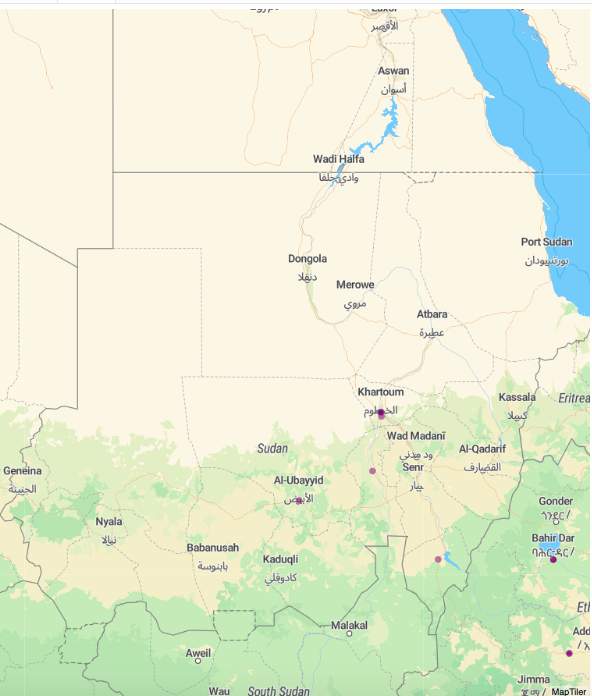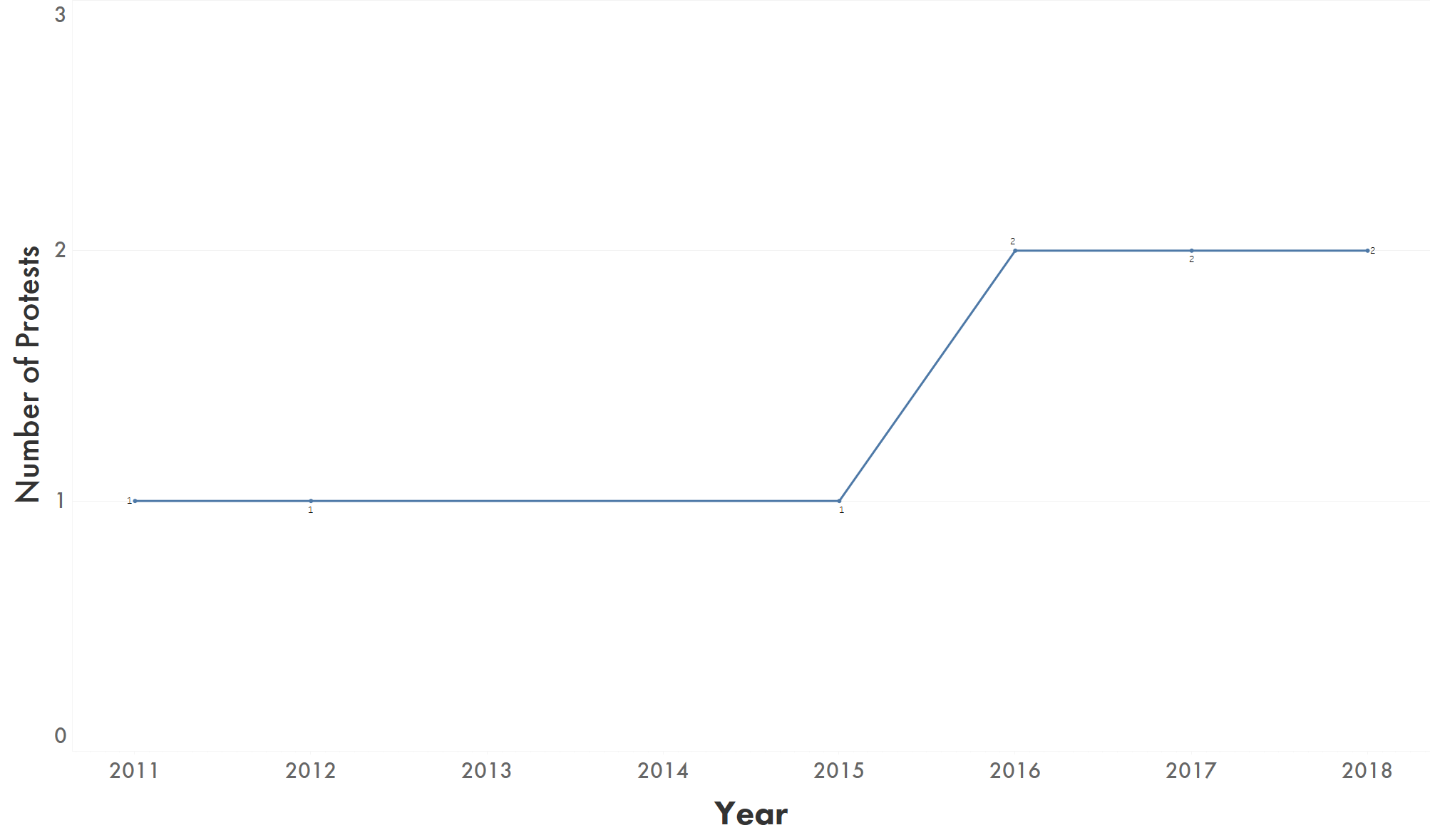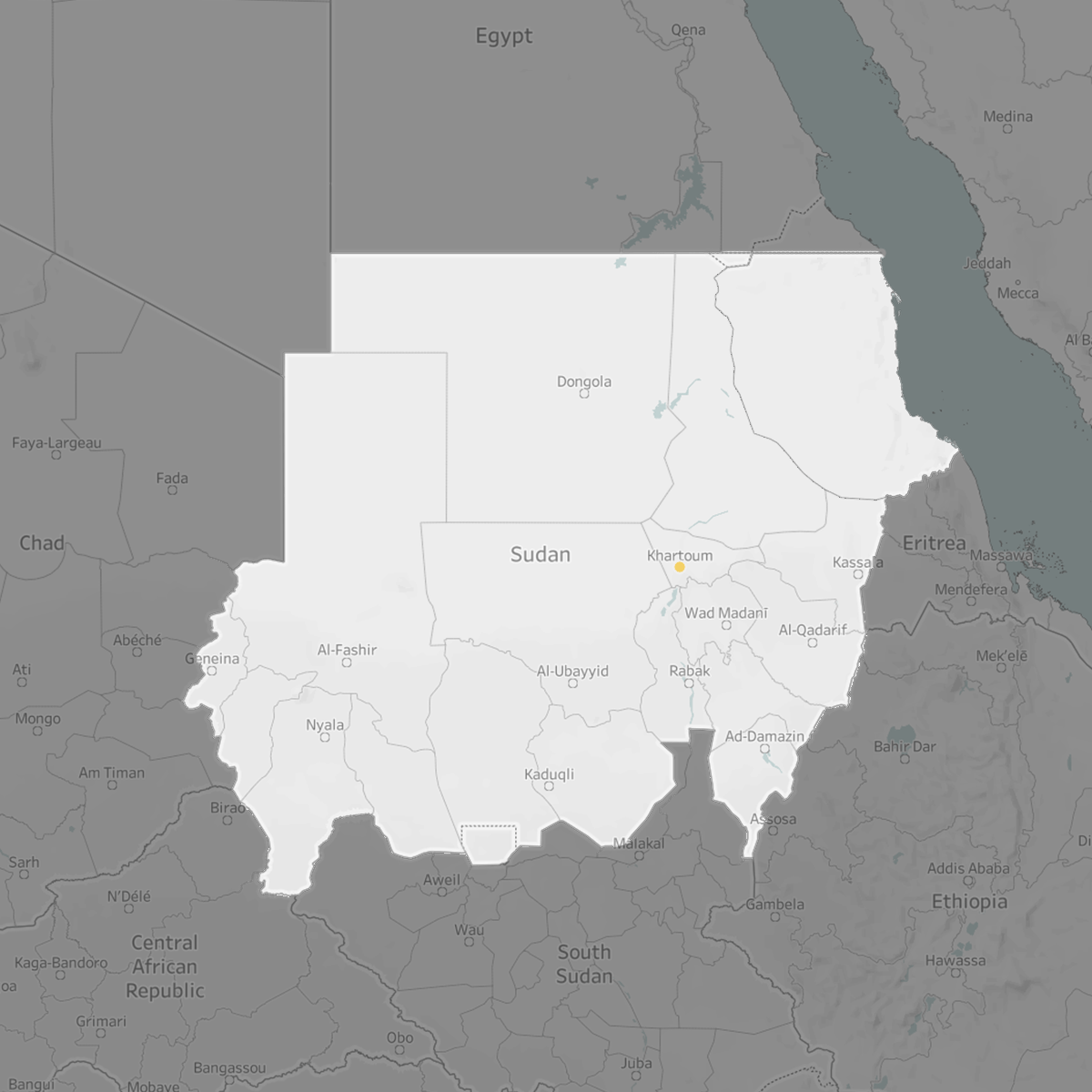Sudan
Sudan is a northeastern country that included South Sudan for more than a century, which seceded with independence in 2011 (see South Sudan entry for more information). For many centuries, Sudan has been host to many cultural interactions between African and Mediterranean traditions. Colonized by the British, the country achieved independence in 1956. The country's power, development, and wealth have long been sequestered in the north because the British found less resistance to colonization. After independence, governments found it very difficult to maintain power between the distinctive north and south; two civil wars followed between 1955-1972 and again between 1983 - 2005 when the Comprehensive Peace Agreement ending the fighting and gave South Sudan a pathway to independence, which was finalized in July 2011. Sudan's capital is Khartoum. Sudan's northern neighbor is Egypt, and the country is composed of vast plains, sand, and flat mesas of Nubian sandstone. The Nile River system runs through the country, with all the rivers and streams draining towards the Nile. The education system was established in the 1970s when the government reorganized the unorganized system of schools they inherited from the British colonial government. This included several higher education institutions, which doubled between 1990 and 1995. The country has had several constitutions and regime changes by military coups in 1985, 1989, and 2019. The interim constitution of 2005 was suspended after the 2019 coup, and the Forces for Freedom and Change (FFC); an alliance between military and civilian groups, signed a new constitutional declaration that outlined a power-sharing agreement and a roadmap for a democratically-elected government to be installed with the first elections expected in 2022.

DATA VISUALIZATIONS


PROTESTS
Sudan-April-2016
Kordofan, Kordofan University
Thousands of students protest after the death of a student who was killed by gunfire of police. Police opened fire on students during a peaceful march, injuring another 27 students. Dozens of students were detained. (Primary Source)
Sudan-July-2017
White Nile State, Bakht al-Rida University
Hundreds of Darfuri student protesters were stopped at the capital gates. The students intended to deliver a statement listing their demands to the government - including a demand to reinstate 14 Darfuri students who were expelled. (Primary Source)
Sudan-June-2012
Khartoum,
Hundreds of university students led anti-government protests in Khartoum, Omdurman and Bahari. The protests denounced the recent budget cuts and austerity measures introduced by Sudanese government. (Primary Source)
Sudan-January-2018
Darfur, Blue Nile,
One student was killed during a protest against soaring bread prices. Protests happened in multiple locations. In Khartoum, the capital, demonstrators burned tires and blocked roads. Police fired tear gas. (Primary Source)
Sudan-January-2011
Khartoum, Khartoum University
Student dies after being beaten by police during a protest against the Sudan government. 2 other students were seriously injured and taken to the hospital following the violence. (Primary Source)
Sudan-January-2018
Khartoum, University of Khartoum
Students protest for three days against deteriorating economic conditions. 3 students arrested after police dispersed protest. (Primary Source)
Sudan-March-2015
Khartoum, Khartoum University
One Sudanese student died after police fired tear gas at Khartoum University protesters. Students were protesting against the escalating violence in Darfur which they blamed on the government. (Primary Source)
Sudan-May-2016
Khartoum, Khartoum University
Students protest the controversial set of documents called the Khoartoum Plan Project which implied that segments of the university were defined as an "investment zone". (Primary Source)
Sudan-September-2017
Khartoum, Khartoum University
This article notes that a Sudanese student was condemned to hang for killing a police officer during a protest at Khartoum University one year earlier. (Primary Source)